As of 13 May 2024, the law on Ambient Air Quality enters into force in Moldova.
The law partly implements the EU Directive 2008/50/EC (“the Ambient Air Quality Directive”) and the EU Directive 2004/107/EC relating to arsenic, cadmium, mercury, nickel and polycyclic aromatic hydrocarbons in ambient air.
The law sets out the “polluter pays” principle and establishes the National Inventory of Air Pollution Sources.
All companies and sole traders that operate stationary air pollution source or performing an activity that impacts the ambient air quality are defined as “operators”.
Operators’ obligations include the following:
a) to participate in the development of local air quality plans/air quality plans and comply with the obligations set out in such plans;
b) to implement measures set out in the relevant air quality plans that are aimed to reduce emissions of air pollutants;
c) to immediately notify the Environmental Protection Inspectorate in case of accidents, emergencies, incidents, accidental stops/starts, etc., and in case of exceeding the limit values for air pollutant emissions;
d) to monitor the emissions of air pollutants from all installations under their control, using the methods and equipment set out by the law;
e) to provide the Environmental Agency with the requested information for the compilation of air pollutant emission inventories;
f) to provide points for sampling and monitoring of emissions of air pollutants in accordance with regulatory documents;
g) to take the necessary measures to eliminate the causes and consequences for air quality in case of exceeding the limit values for emissions of air pollutants, including the temporary suspension of the operation of the installation that caused this situation.
Operators performing certain hazardous types of activity are also required to submit regular reports to the Environmental Agency of Moldova.





